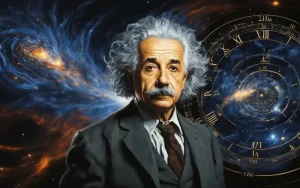Who Was Charles Babbage?
Charles Babbage is widely known as the “Father of the Computer.” He was a British mathematician, inventor, philosopher, and mechanical engineer who played a crucial role in laying the foundation for modern computing. His ideas were far ahead of his time, and his work in designing mechanical computing devices paved the way for the digital revolution.
Early Life of Charles Babbage
Birth and Family Background
Charles Babbage was born on December 26, 1791, in London, England. His father, Benjamin Babbage, was a wealthy banker, and his mother, Betsy Plumleigh Teape, came from a prominent family. Young Babbage had the privilege of growing up in an intellectually stimulating environment.
Education and Interests
Babbage’s love for mathematics blossomed early in his life. He attended several prestigious schools and eventually enrolled at Trinity College, Cambridge, in 1810. His curiosity about numbers and machines led him to challenge conventional thinking and explore new ideas in mathematics.
Contributions to Mathematics and Science
Babbage and the Difference Engine
One of Babbage’s greatest contributions was the Difference Engine. This machine was designed to automate the process of calculating complex mathematical tables. While the machine was never fully completed during his lifetime, it laid the groundwork for mechanical computation.
The Analytical Engine
Babbage took his ideas further with the design of the Analytical Engine, considered the first concept of a general-purpose computer. Unlike the Difference Engine, the Analytical Engine could be programmed with instructions, making it a true precursor to modern computers.
Influence on Later Computing
Though Babbage’s machines were never built during his lifetime, his ideas were picked up and refined by later inventors, especially in the 20th century. The principles he established—like programmable computation and data storage—are the foundation of today’s computers.
Charles Babbage’s Other Works and Interests
Cryptography
Babbage also made important contributions to the field of cryptography. He cracked the Vigenère cipher, a popular encryption method in his time, demonstrating his diverse intellectual capabilities.
Economics and Philosophy
In addition to his technical work, Babbage was deeply interested in economics and social issues. He wrote on topics such as industrial efficiency and the division of labor, showcasing his wide-ranging interests.
Legacy of Charles Babbage
The Modern Computer Age
Although his machines were not fully realized in his lifetime, Babbage’s designs directly inspired the development of modern computing. His work was rediscovered in the 20th century, and he is now recognized as a pioneer whose vision shaped the digital world we live in today.
Memorials and Honors
Babbage’s contributions have been widely acknowledged posthumously. Several academic institutions and museums honor his memory, with parts of his unbuilt machines displayed at the Science Museum in London.
Wrapping Up: Charles Babbage’s Lasting Influence
Charles Babbage was a visionary whose forward-thinking ideas were instrumental in the development of modern computers. Despite the technical limitations of his time, his innovative designs demonstrated what machines could accomplish. His legacy lives on, and his name remains synonymous with the birth of computing.
Final Thought
Without Charles Babbage’s groundbreaking work, the digital age might have taken longer to arrive. His contributions to mathematics, engineering, and computer science continue to influence technology today.



